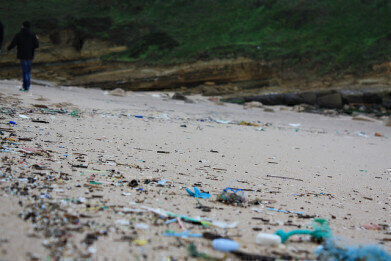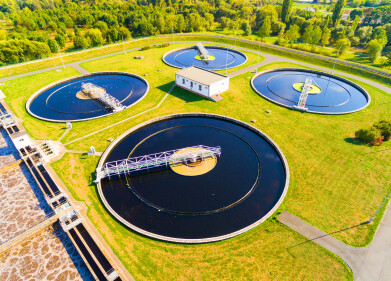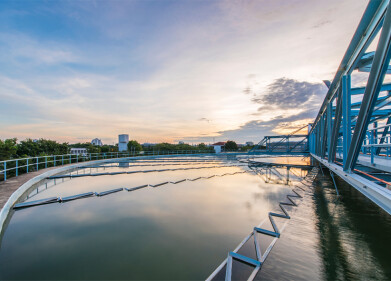Water/Wastewater
What Is Polluting UK Sea Beds?
Nov 08 2017
The amount of litter washed up on the British seashore has increased by 158% from last year, according to new government figures. The data was published in a report from the Department of Environment, Food and Rural Affairs (DEFRA) and highlights the huge problem of ocean pollution which faces the UK.
The majority of the litter was plastic, but there was also rubber, metal and other components in its makeup. While much of this waste is produced by industry and big business, each British citizen has their own responsibility to curb their plastic pollution if the issue is to be properly addressed.
Back on the rise?
Experts have linked fluctuating levels of seabed pollution to weather patterns over the years, but the total amount of litter on our sea beds has generally been in decline since 2003. That year saw the pollution reach a peak of 1,300 items of litter per square kilometre.
In 2016, 358 items per square kilometre were discovered. While that represents a much smaller figure than the peak, it’s 158% higher than the preceding year and 222% higher than the average for the period between 1992 and 1994. It’s also the first increase in three years, as well.
Nearly 78% of that total litter is plastic pollution, with rubber (6.3%) and metal (2.7%) also significant contributors. But since plastic makes up nearly four-fifths of the seabed pollution, and given that coastal monitoring could potentially represent a mere drop in the ocean, our throwaway culture with regards to plastic must change.
Industry and government the biggest culprits?
The single-use of many plastics in supermarkets, offices and factories causes a heavy burden on the environment, with much of the plastic not even being recycled. Action from the industry could be instrumental in turning the tide against plastic pollution of our seas and rivers, since they produce a significant amount of the waste.
Sewage plants are also partially to blame, since the plastic particles used in the treatment of wastewater can often make it through their own filtration systems and end up in the ocean. Meanwhile, fisheries are affected by a variety of factors and the litter caused by human activity is thought to cost the industry up to £10 million per annum.
The Lib Dem spokesman for the environment Tim Farron was quick to point the finger at the British government as well, highlighting the fact that DEFRA’s 25-year agenda for tackling seabed pollution was supposed to be published last year but has suffered repeated delays.
“The government needs to get its act together and take urgent action to clean up our seas and countryside,” he said. “The long promised 25-year plan to protect our environment needs to be published now, not simply kicked into the long grass.”
A collective responsibility
While affirmation action from the government and the industry would make it easier to wean ourselves off our plastic addiction, it is not imperative. A small change to all of our daily habits could make a huge a difference to the amount of litter ending up in the ocean.
For example, one million plastic bottles are sold worldwide every single minute, and British consumption alone accounts for 38.5 million every day. With only half of that total being recycled, a switch to a reusable water bottle could do wonders for the environment.
“Joining the Refill movement and carrying a reusable water bottle or coffee cup in public, carrying a metal straw in your bag, switching to reusable menstrual products – these things spread a powerful message, we can choose to reuse,” said Natalie Fee, founder of campaign group City to Sea. “We don’t have to rely on supermarkets or government to make these simple choices for us, although it would help if they were more proactive in tackling this environmental disaster.”
Digital Edition
IET 34.2 March 2024
March 2024
Gas Detection - Biogas batch fermentation system for laboratory use with automatic gas analysis in real time Water/Wastewater - Upcycling sensors for sustainable nature management - Prist...
View all digital editions
Events
Apr 22 2024 Hannover, Germany
Apr 22 2024 Marrakech, Morroco
Apr 23 2024 Kuala Lumpur, Malaysia
Apr 23 2024 Kintex, South Korea
Apr 23 2024 Edmonton, AB, Canada


















